In view of auditions
It seems appropriate to repost this. But also, methinks, to expand from the conversation I had with Johnny yesterday. I'll try to break it up a bit with headings, but herein follows my continuing dissertation on casting, auditions, parts and actors.
Of Plays and Playwrights
Most plays are written with two sets of main characters: lead and supporting (or character) roles. Intersperced are various other roles that tend to fall into faceless or other character roles. To take an upcoming example, let's look at Guys an Dolls. The lead roles are Sky Masterson (our protagonist) and Sally Brown (our protagonist's romantic interest and in this case - in a nice Pride and Prejudice twist our antagonist). The character roles are Nathan Detroit (our catalyst) and his 14-year fiancee Adelaide (Nathan's romantic interest and antagonist). Peppered throughout are some faceless characters (mostly, alas, the Hotbox Girls) as well as some great character roles (Nicely-Nicely, Big Jules, Uncle Arvid, etc.).
Now, ideally, the lead characters go through some sort of character arc. In Guys and Dolls they do. In Matchmaker we had to play it as if Dolly and Horace somehow change, but it's not written in. Hamlet changes several times. However, quite a few plays/movies, etc. don't really allow the lead actor to have much in the way of roundness much less self-revelation, so the play leaves the interest of the play totally in the charisma of the actors.
The character actor roles, however, are more often the comedic roles (even in a comedy). They're slightly outlandish, they must have a great sense of timing, and often they're truly enjoying themselves within the play. How many times have we gone to see a romantic comedy or the latest action flick and the only thing bearable about it were the character actors? The wacky sidekicks, the quirky neighbors, the loony best friends? However, unless the play is really, really well written, these poor character actors are frequently given roles with little to no character arc - either because the author didn't want to upstage his flat lead characters, or because the character roles have already had their emotional journal previous to the start of our action and are now along for the ride. Again, a great play allows character roles to also have parallel character arcs, but this is not always possible.
As for the tertiary and so on roles, whether these shine or not depends almost entirely upon whether a good character actor has been cast or not. Lead actors frequently do nothing with them, unless they've been sufficiently trained in "bit character parts" or unless specifically directed to do something with the role. But a good character actor will simply make up a whole life for the filler role. Of course, if the role is well written, it will almost play itself - still a good character actor will flesh it out best.
Of Acting
We say that a good actor loses himself in the role, and this is in part true, but honestly, it's more that actors bring out bits of themselves - bits that they as a person are capable of but which they may or may not allow themselves in real life - and they play that. So, I think it's safe to say that every actor plays a version of himself. The difference between a good actor and a mediocre actor then is a) to what extent he's willing to learn new facets of his potential personality and allow them out on stage and b) what facets he is actually capable of. Both may be slightly subject to time, to age. The actor who is emotionally immature will not be as capable of bringing forth various controlled characteristics as the mature actor.
But what then marks a difference between a character and lead actor? I'd say that the lead actor has a mark about him of everymanness while the character actor has the capability to be everyothermanness. The lead tends to speak to our soul while the character speaks of our neighbour. We identify with the lead; we are surprised by the character.
However, many of our Hollywood lead actors rely entirely upon the image they've built up of themselves - upon their personality schtick - to draw folk into their shows. They don't attempt to bring forth new parts of their everymanness but they play the role they've assigned themselves in what passes for real life for a "supserstar." The character actors, in Hollywood anyway, are therefore frequently the folk who are more willing to keep their personal lives quiet, and to do everything possible to disguise themselves within the role. (Which is why, of course, those fellows are the ones who everyone says: "Oh, that's...um...man I've seen him in everything!" AKA - they may not be known for what they had for breakfast that day or who they're dating, but they get consistent work.)
Of course, that oughtn't be the difference between the two, because it makes everyone want to be a lead merely for the fame, and it makes for bad leads when they could be better trained to really tap into their emotional core. Whether one tends to be better suited for one or the other oughtn't impede training. Never trade training for looks!
On Casting
When putting together a show, one is looking for who fits which part best. Although, certainly, looks may have more or less to do with the part - i.e., one doesn't want to make some of the grave mistakes I've seen which simply render the play ridiculous: such as a 6-foot Amazon playing a woman dying of consumption (ha!), or a 5-foot nothing mouse of a man attempting to lift up a dying 6-foot-round Lucia di Lamamoor (ouch!), or a cadaverous Giselle who looks like all she needs is one good meal to stay alive for Act II - and while certain forms of plays will necessitate more emphasis on looks in re: pairing - such as in ballets, where since we're watching bodies in motion, you want partners for pas-de-deux to not only be excellent dancers but also to look very handsome together - of even greater importance is whether an actor clicks with a role, and whether he is the only one who can bring that role to life.
(A note for the English impaired: obviously, when I'm using the pronoun "he" I'm doing so as an unspecified gender. Right. Grammar over.)
Now, sometimes there are several people who can play the straight man "everyman" lead role. Great. So then what sets one person apart from others? Well, frequently it comes down to (in no particular order) a) craft and technique - can the actor speak the lines clearly and intelligently, does he make interesting choices with the lines, does he make the meaning clear, can he change tactics at a drop of the hat, etc. etc.; b) charisma - does he pull the audience in, do we want to watch him for the greater part of the play?; c) chemistry - does he pull the best out of his fellow actors, is there that necessary spark between himself and his romantic interest?
As for the character actors it comes down to similar questions: a) craft and technique - can he speak the lines clearly and intelligently, can he bring some sort of trick to saying the lines such as an accent, a peculiar character tick, a humour, a villanry, what spin does he put on the character that makes the character come alive and which only this actor can bring to the role?; b) charisma - is his very appearance cause for a settling into the seat to watch a consummate performer play with a role, does his arrival elicit laughter or gasps of fear?; c) chemistry - does he play well with others, is he happy in the role he's best suited for, will he upstage everyone with his clowning or does he know when to play it straight and when to show off?
Frequently - or at least so I've found of late - one has an embarrassment of riches with various actors, particularly actresses, and in such a situation casting comes down almost entirely to chemistry - who does she click with best?
One thing I particularly dislike is giving out the cast list. There's no good way to do it. Most theatres simply don't care about how an actor feels, but I suppose I'm a wuss and I do. Professional theatres simply call those folk they do plan to offer jobs to, and those who they do not plan to use will not hear back at all. Some local community theatres will give calls to everyone offering roles or thanking folk for auditioning. Most other theatres simply post cast lists and leave folk to weep at their own leisure - or make nasty comments. Since the latter happened two years ago, I've since tried to find a different method. We've given out cards which went OK. We've read the list from the bottom up which means that people stew in their sorrow without giving happiness to those who finally landed a major role. We could read from the bottom down, but then as your name isn't called and isn't called you stew and the same occurs. I wish I had the heart to be callous. Regardless, I think this time we're going to read according to the actor's first name in alphabetical order. And I'll remind everyone that in the real world - heck, in the world just a step outside our door - no one holds an actor's hand quite as much as here. So grow some tough skin and be joyful and remember that it's not about you at all - the play really is the thing.
Mood: Have an appt. with St. Luke's in just a few - wish me luck!
Music: Was VM until the CD ran out
Thought: Have I mentioned I seriously need a new chair? Sigh. Grading looms.
It seems appropriate to repost this. But also, methinks, to expand from the conversation I had with Johnny yesterday. I'll try to break it up a bit with headings, but herein follows my continuing dissertation on casting, auditions, parts and actors.
Most plays are written with two sets of main characters: lead and supporting (or character) roles. Intersperced are various other roles that tend to fall into faceless or other character roles. To take an upcoming example, let's look at Guys an Dolls. The lead roles are Sky Masterson (our protagonist) and Sally Brown (our protagonist's romantic interest and in this case - in a nice Pride and Prejudice twist our antagonist). The character roles are Nathan Detroit (our catalyst) and his 14-year fiancee Adelaide (Nathan's romantic interest and antagonist). Peppered throughout are some faceless characters (mostly, alas, the Hotbox Girls) as well as some great character roles (Nicely-Nicely, Big Jules, Uncle Arvid, etc.).
Now, ideally, the lead characters go through some sort of character arc. In Guys and Dolls they do. In Matchmaker we had to play it as if Dolly and Horace somehow change, but it's not written in. Hamlet changes several times. However, quite a few plays/movies, etc. don't really allow the lead actor to have much in the way of roundness much less self-revelation, so the play leaves the interest of the play totally in the charisma of the actors.
The character actor roles, however, are more often the comedic roles (even in a comedy). They're slightly outlandish, they must have a great sense of timing, and often they're truly enjoying themselves within the play. How many times have we gone to see a romantic comedy or the latest action flick and the only thing bearable about it were the character actors? The wacky sidekicks, the quirky neighbors, the loony best friends? However, unless the play is really, really well written, these poor character actors are frequently given roles with little to no character arc - either because the author didn't want to upstage his flat lead characters, or because the character roles have already had their emotional journal previous to the start of our action and are now along for the ride. Again, a great play allows character roles to also have parallel character arcs, but this is not always possible.
As for the tertiary and so on roles, whether these shine or not depends almost entirely upon whether a good character actor has been cast or not. Lead actors frequently do nothing with them, unless they've been sufficiently trained in "bit character parts" or unless specifically directed to do something with the role. But a good character actor will simply make up a whole life for the filler role. Of course, if the role is well written, it will almost play itself - still a good character actor will flesh it out best.
We say that a good actor loses himself in the role, and this is in part true, but honestly, it's more that actors bring out bits of themselves - bits that they as a person are capable of but which they may or may not allow themselves in real life - and they play that. So, I think it's safe to say that every actor plays a version of himself. The difference between a good actor and a mediocre actor then is a) to what extent he's willing to learn new facets of his potential personality and allow them out on stage and b) what facets he is actually capable of. Both may be slightly subject to time, to age. The actor who is emotionally immature will not be as capable of bringing forth various controlled characteristics as the mature actor.
But what then marks a difference between a character and lead actor? I'd say that the lead actor has a mark about him of everymanness while the character actor has the capability to be everyothermanness. The lead tends to speak to our soul while the character speaks of our neighbour. We identify with the lead; we are surprised by the character.
However, many of our Hollywood lead actors rely entirely upon the image they've built up of themselves - upon their personality schtick - to draw folk into their shows. They don't attempt to bring forth new parts of their everymanness but they play the role they've assigned themselves in what passes for real life for a "supserstar." The character actors, in Hollywood anyway, are therefore frequently the folk who are more willing to keep their personal lives quiet, and to do everything possible to disguise themselves within the role. (Which is why, of course, those fellows are the ones who everyone says: "Oh, that's...um...man I've seen him in everything!" AKA - they may not be known for what they had for breakfast that day or who they're dating, but they get consistent work.)
Of course, that oughtn't be the difference between the two, because it makes everyone want to be a lead merely for the fame, and it makes for bad leads when they could be better trained to really tap into their emotional core. Whether one tends to be better suited for one or the other oughtn't impede training. Never trade training for looks!
When putting together a show, one is looking for who fits which part best. Although, certainly, looks may have more or less to do with the part - i.e., one doesn't want to make some of the grave mistakes I've seen which simply render the play ridiculous: such as a 6-foot Amazon playing a woman dying of consumption (ha!), or a 5-foot nothing mouse of a man attempting to lift up a dying 6-foot-round Lucia di Lamamoor (ouch!), or a cadaverous Giselle who looks like all she needs is one good meal to stay alive for Act II - and while certain forms of plays will necessitate more emphasis on looks in re: pairing - such as in ballets, where since we're watching bodies in motion, you want partners for pas-de-deux to not only be excellent dancers but also to look very handsome together - of even greater importance is whether an actor clicks with a role, and whether he is the only one who can bring that role to life.
(A note for the English impaired: obviously, when I'm using the pronoun "he" I'm doing so as an unspecified gender. Right. Grammar over.)
Now, sometimes there are several people who can play the straight man "everyman" lead role. Great. So then what sets one person apart from others? Well, frequently it comes down to (in no particular order) a) craft and technique - can the actor speak the lines clearly and intelligently, does he make interesting choices with the lines, does he make the meaning clear, can he change tactics at a drop of the hat, etc. etc.; b) charisma - does he pull the audience in, do we want to watch him for the greater part of the play?; c) chemistry - does he pull the best out of his fellow actors, is there that necessary spark between himself and his romantic interest?
As for the character actors it comes down to similar questions: a) craft and technique - can he speak the lines clearly and intelligently, can he bring some sort of trick to saying the lines such as an accent, a peculiar character tick, a humour, a villanry, what spin does he put on the character that makes the character come alive and which only this actor can bring to the role?; b) charisma - is his very appearance cause for a settling into the seat to watch a consummate performer play with a role, does his arrival elicit laughter or gasps of fear?; c) chemistry - does he play well with others, is he happy in the role he's best suited for, will he upstage everyone with his clowning or does he know when to play it straight and when to show off?
Frequently - or at least so I've found of late - one has an embarrassment of riches with various actors, particularly actresses, and in such a situation casting comes down almost entirely to chemistry - who does she click with best?
One thing I particularly dislike is giving out the cast list. There's no good way to do it. Most theatres simply don't care about how an actor feels, but I suppose I'm a wuss and I do. Professional theatres simply call those folk they do plan to offer jobs to, and those who they do not plan to use will not hear back at all. Some local community theatres will give calls to everyone offering roles or thanking folk for auditioning. Most other theatres simply post cast lists and leave folk to weep at their own leisure - or make nasty comments. Since the latter happened two years ago, I've since tried to find a different method. We've given out cards which went OK. We've read the list from the bottom up which means that people stew in their sorrow without giving happiness to those who finally landed a major role. We could read from the bottom down, but then as your name isn't called and isn't called you stew and the same occurs. I wish I had the heart to be callous. Regardless, I think this time we're going to read according to the actor's first name in alphabetical order. And I'll remind everyone that in the real world - heck, in the world just a step outside our door - no one holds an actor's hand quite as much as here. So grow some tough skin and be joyful and remember that it's not about you at all - the play really is the thing.
Mood: Have an appt. with St. Luke's in just a few - wish me luck!
Music: Was VM until the CD ran out
Thought: Have I mentioned I seriously need a new chair? Sigh. Grading looms.
 The sporadic ramblings of Emily C. A. Snyder - devoted to God, theatre, writing, and much randominity.
The sporadic ramblings of Emily C. A. Snyder - devoted to God, theatre, writing, and much randominity.









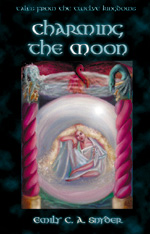


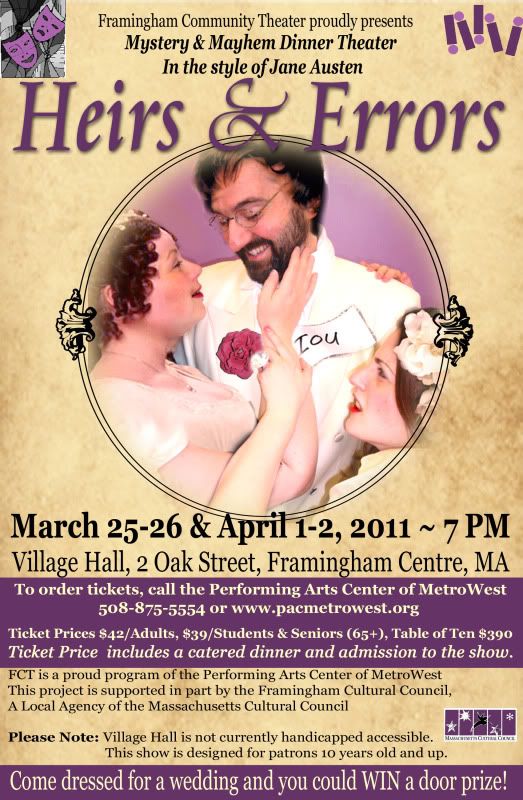




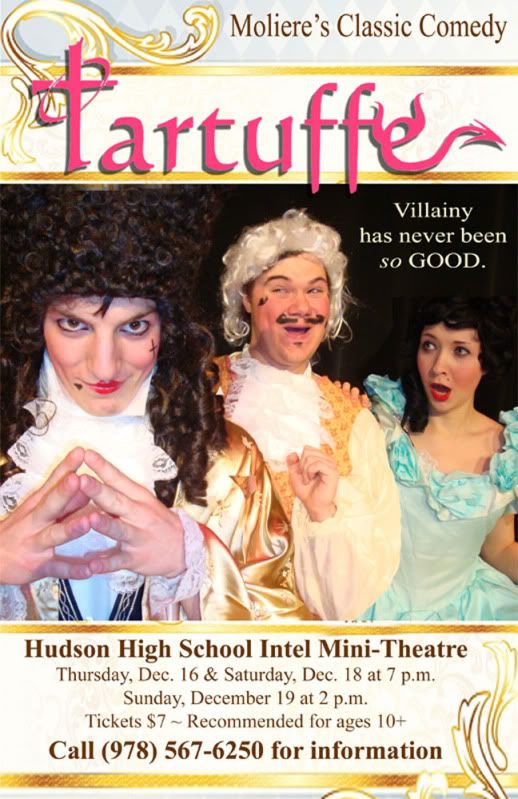
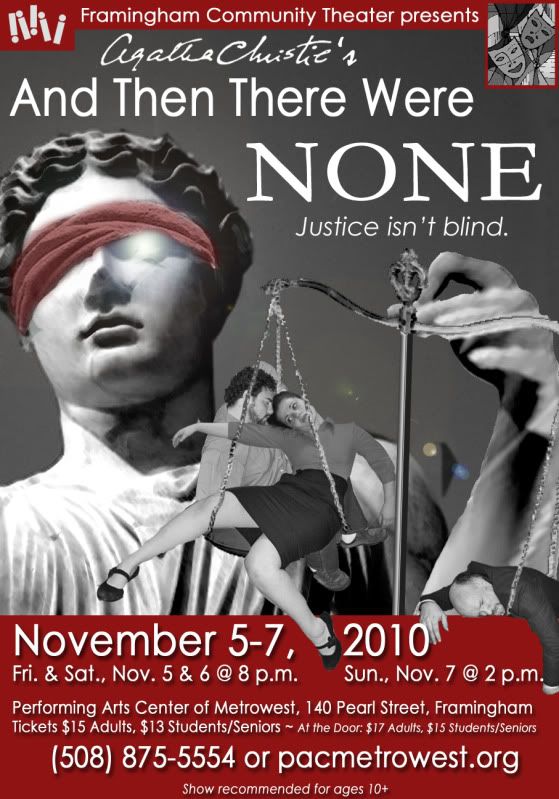


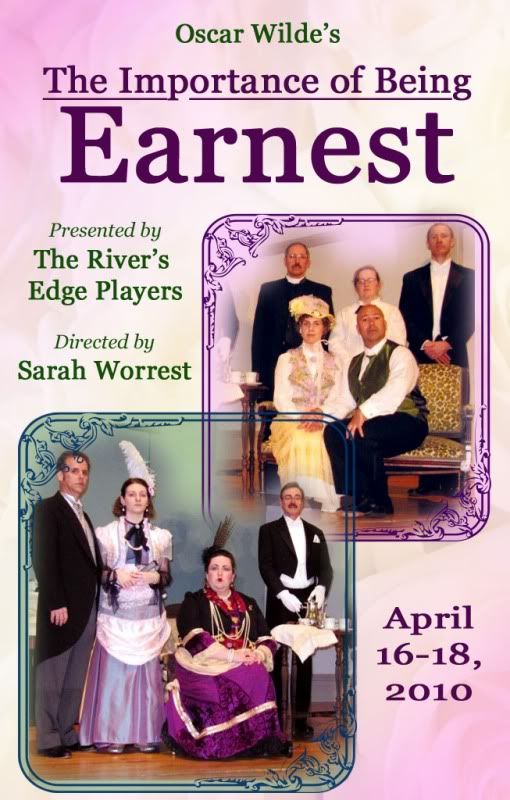

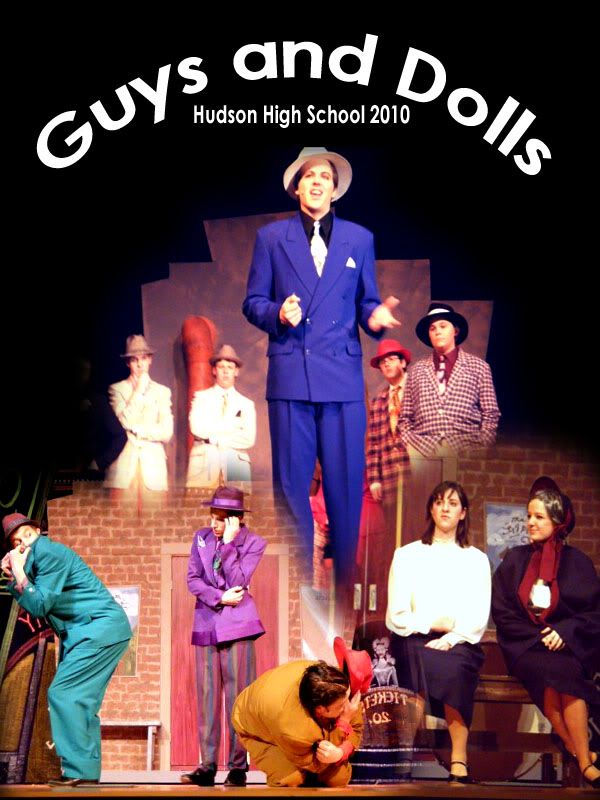
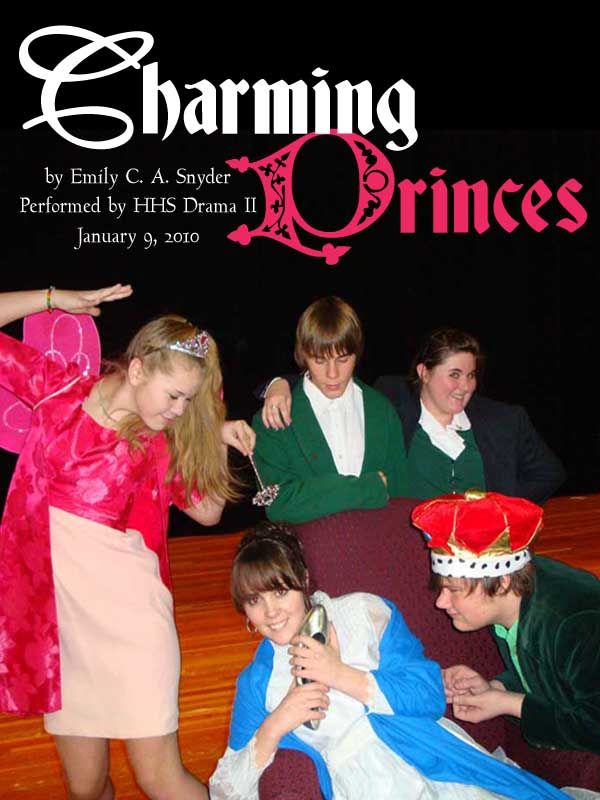


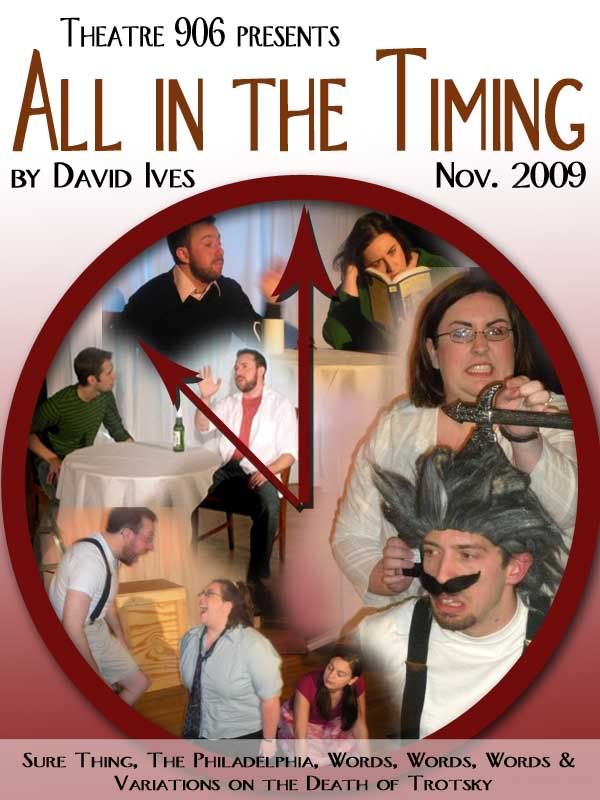
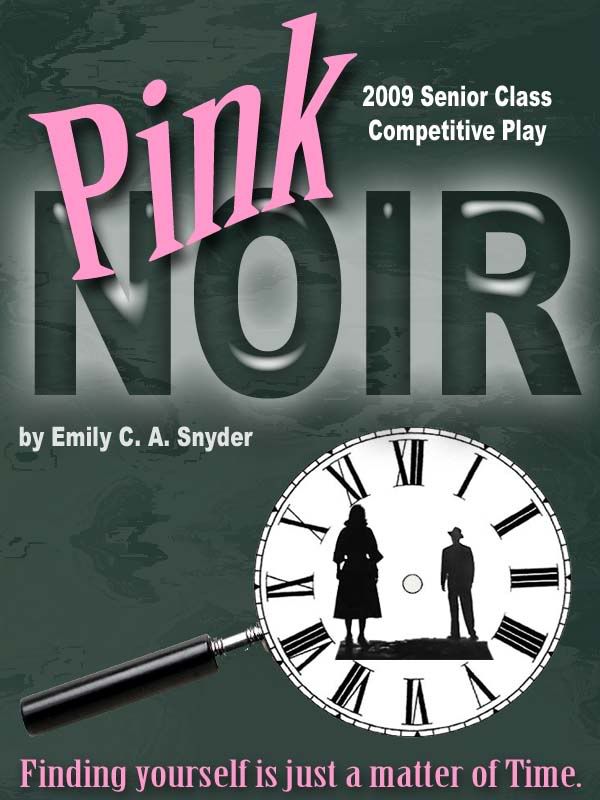

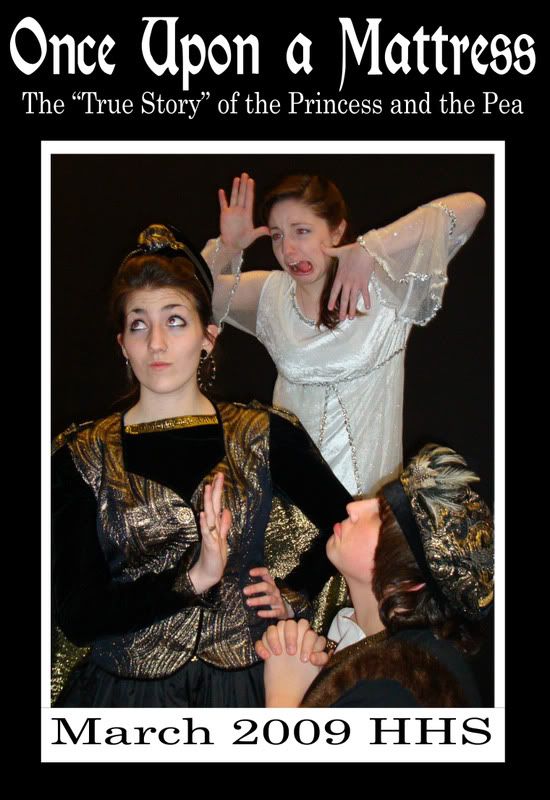


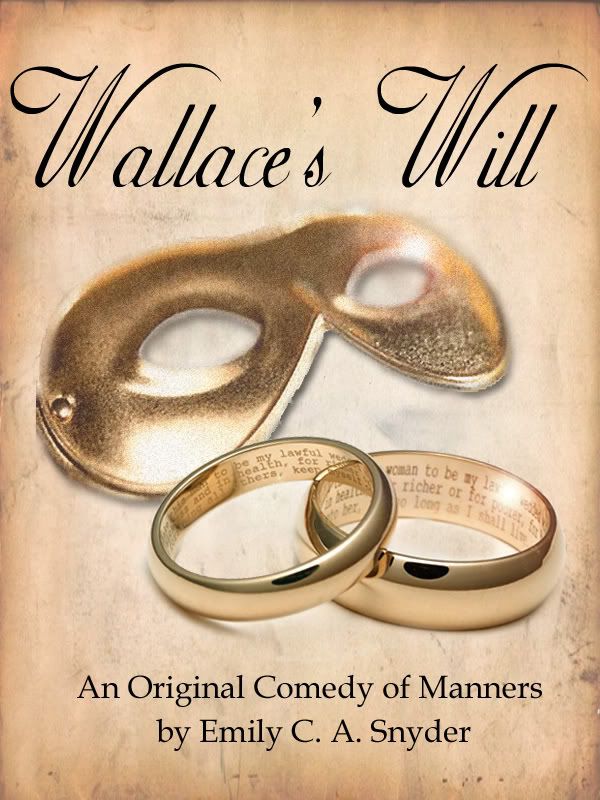

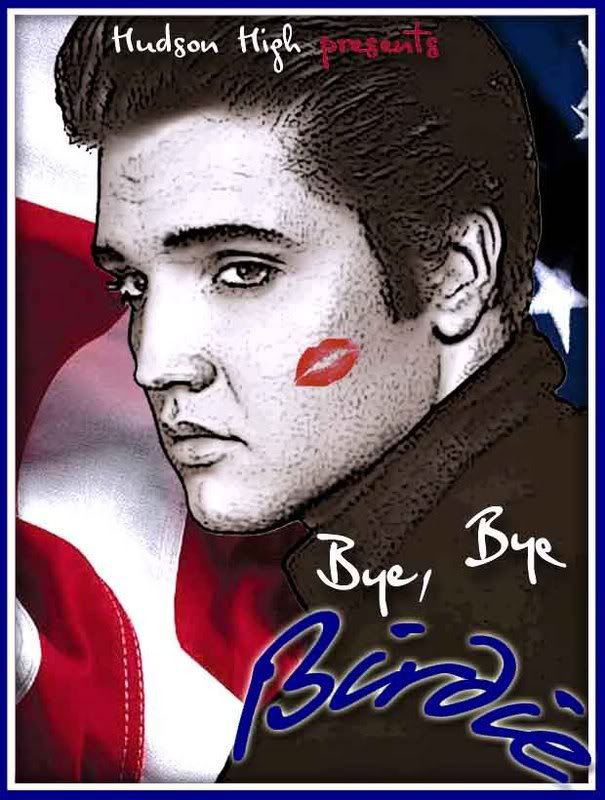
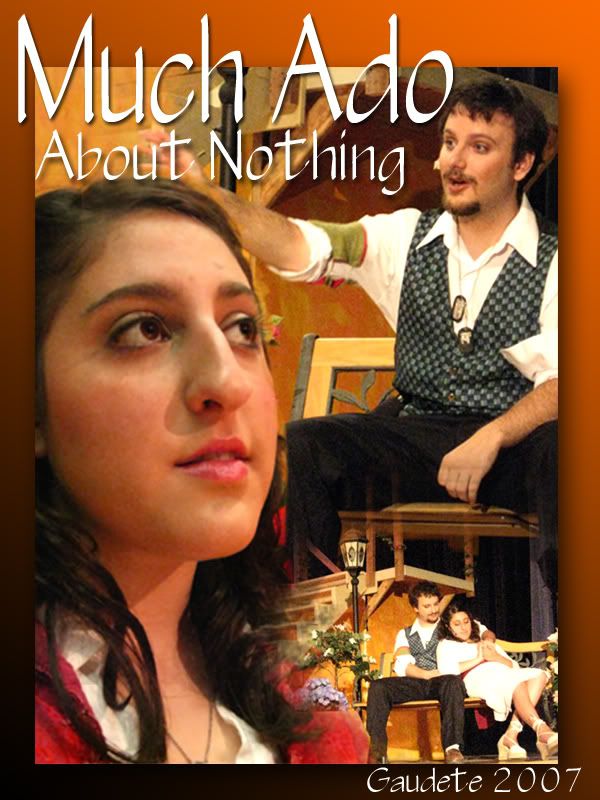

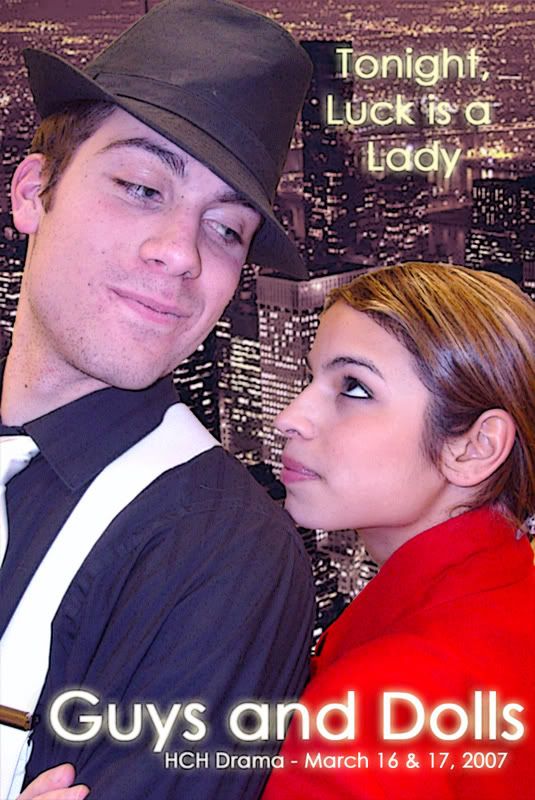



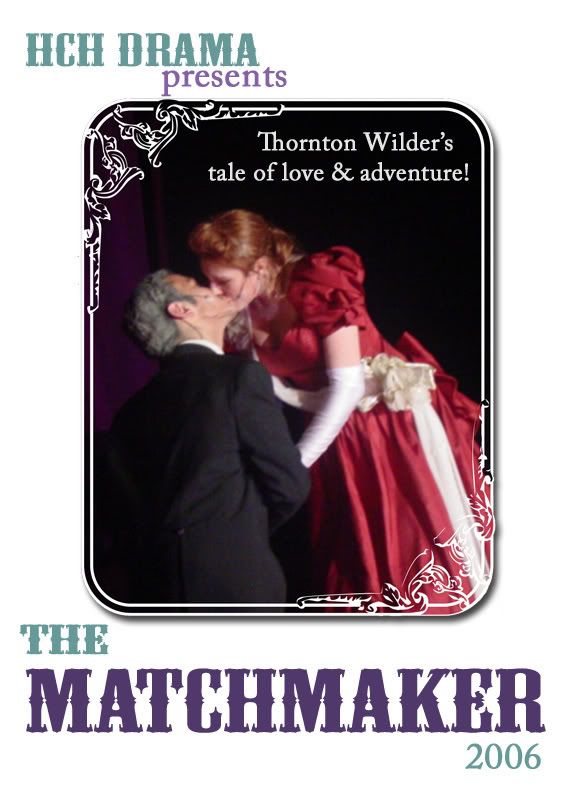








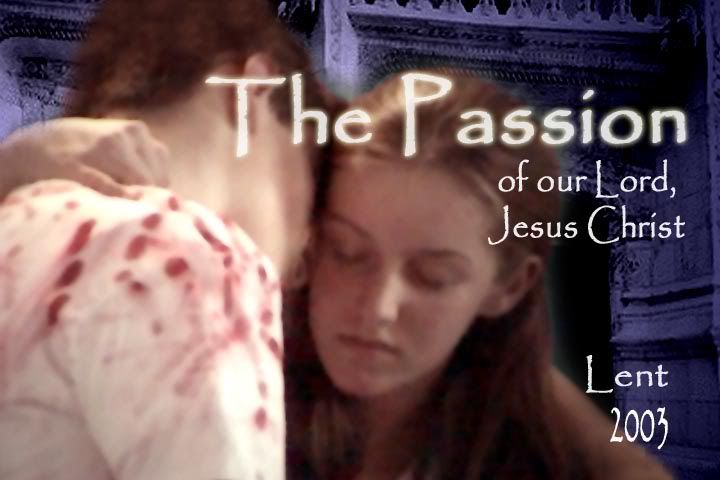

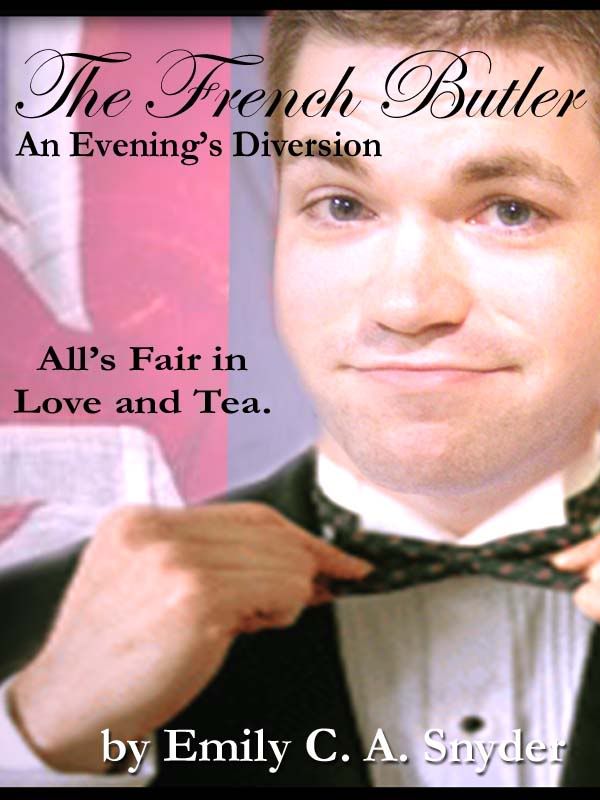
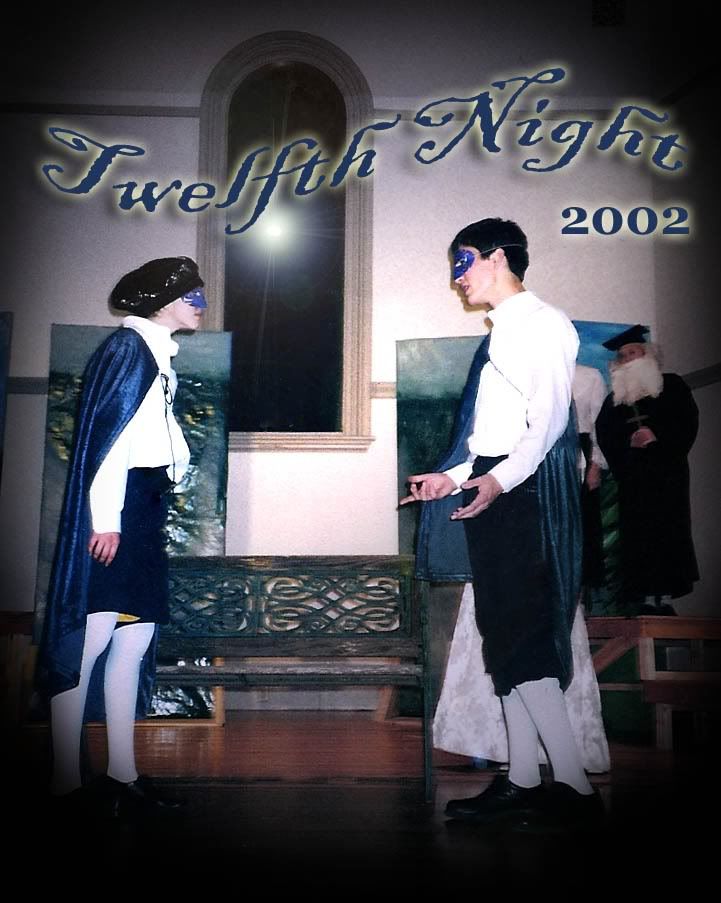
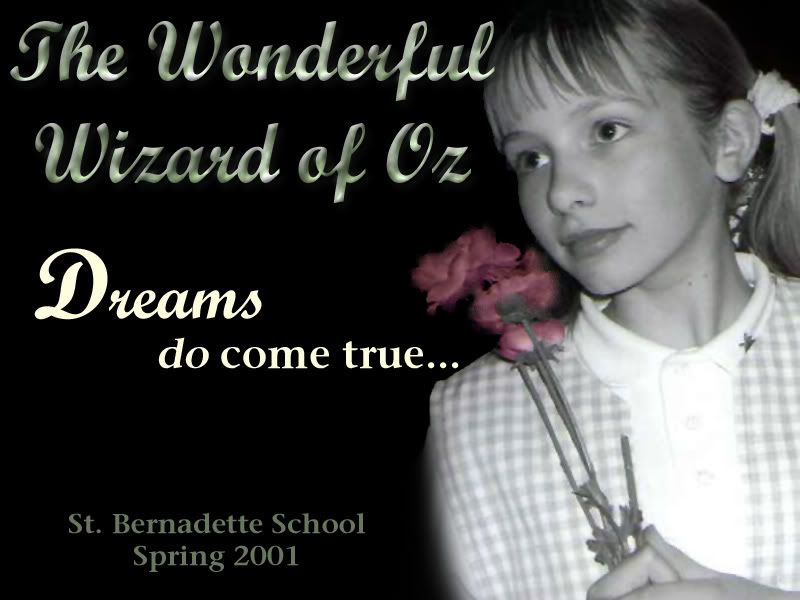
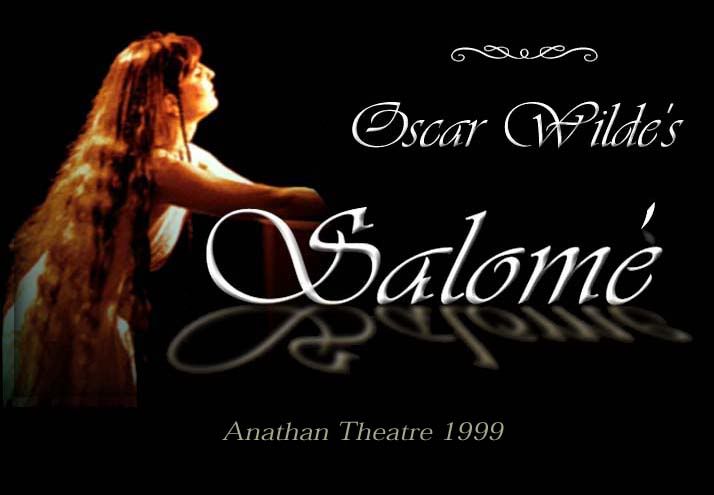


0 Comments:
Post a Comment
<< Home